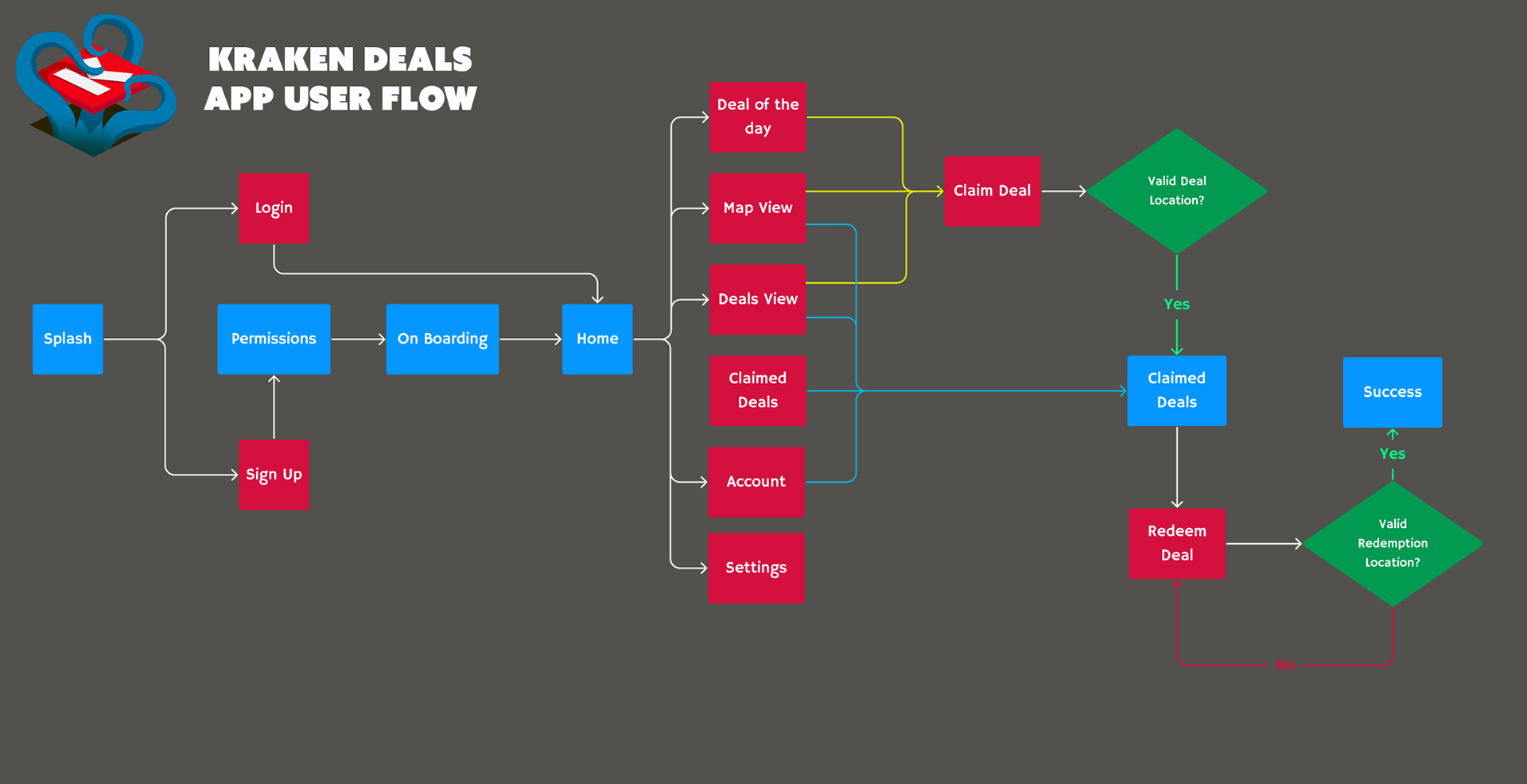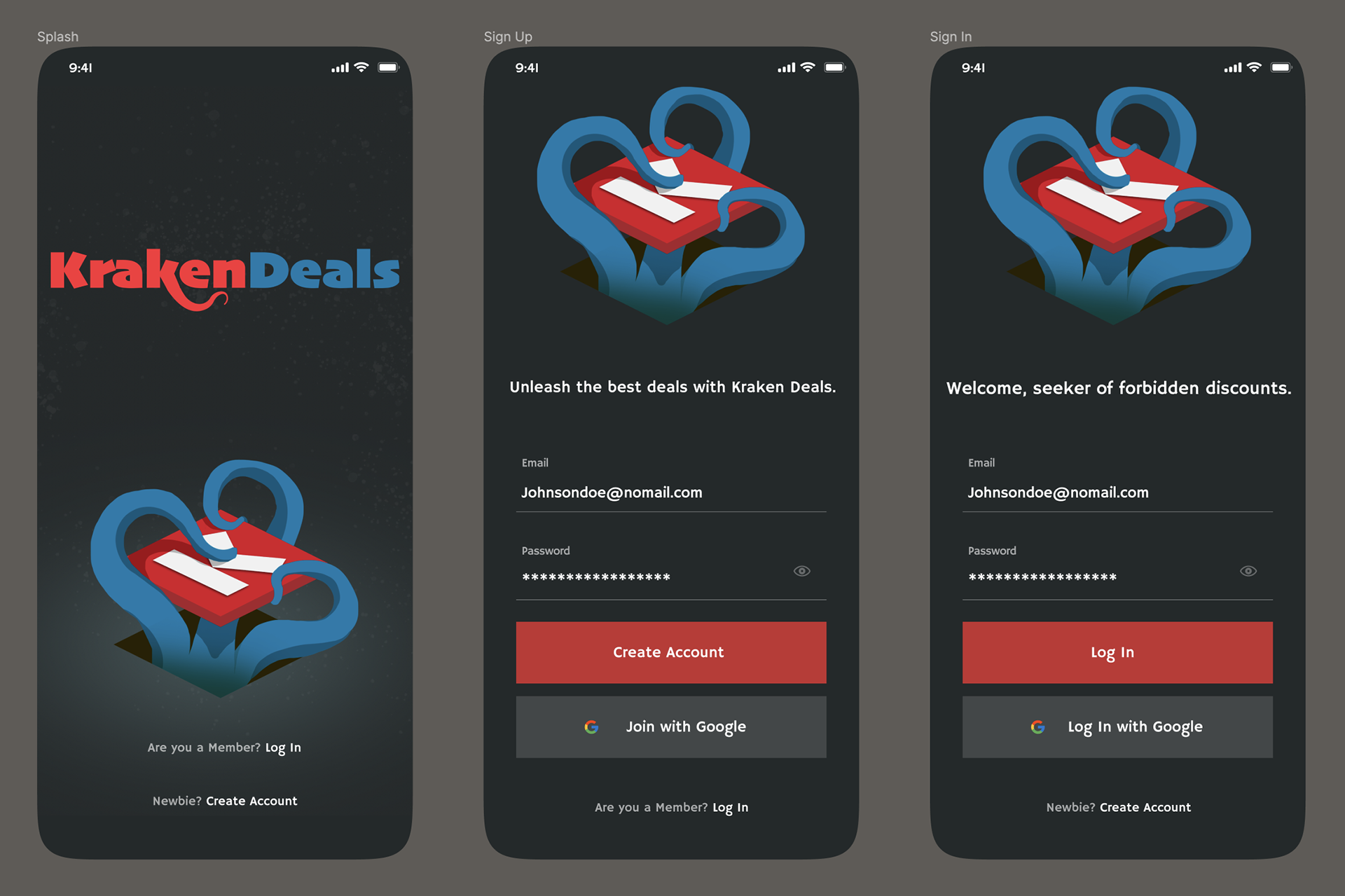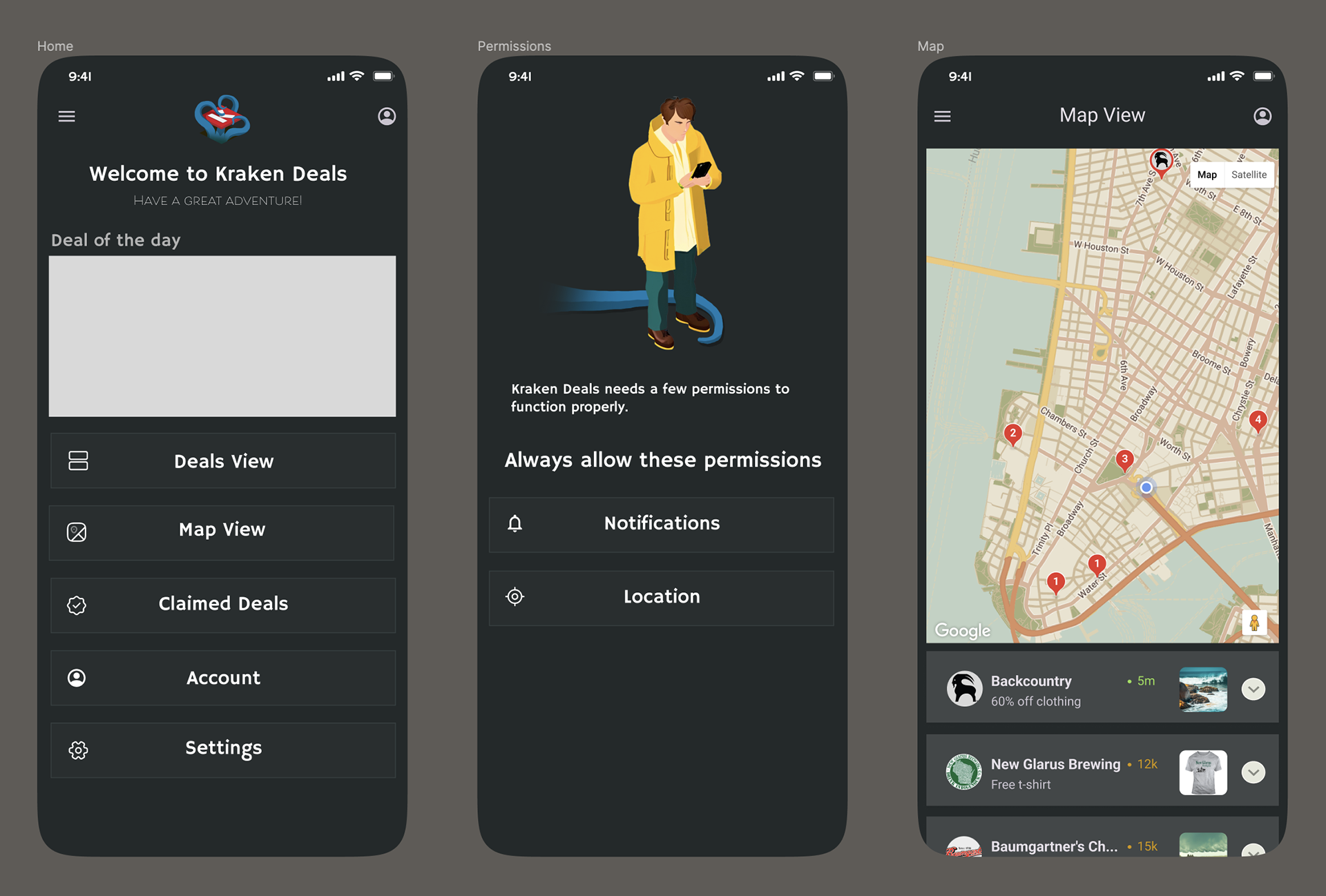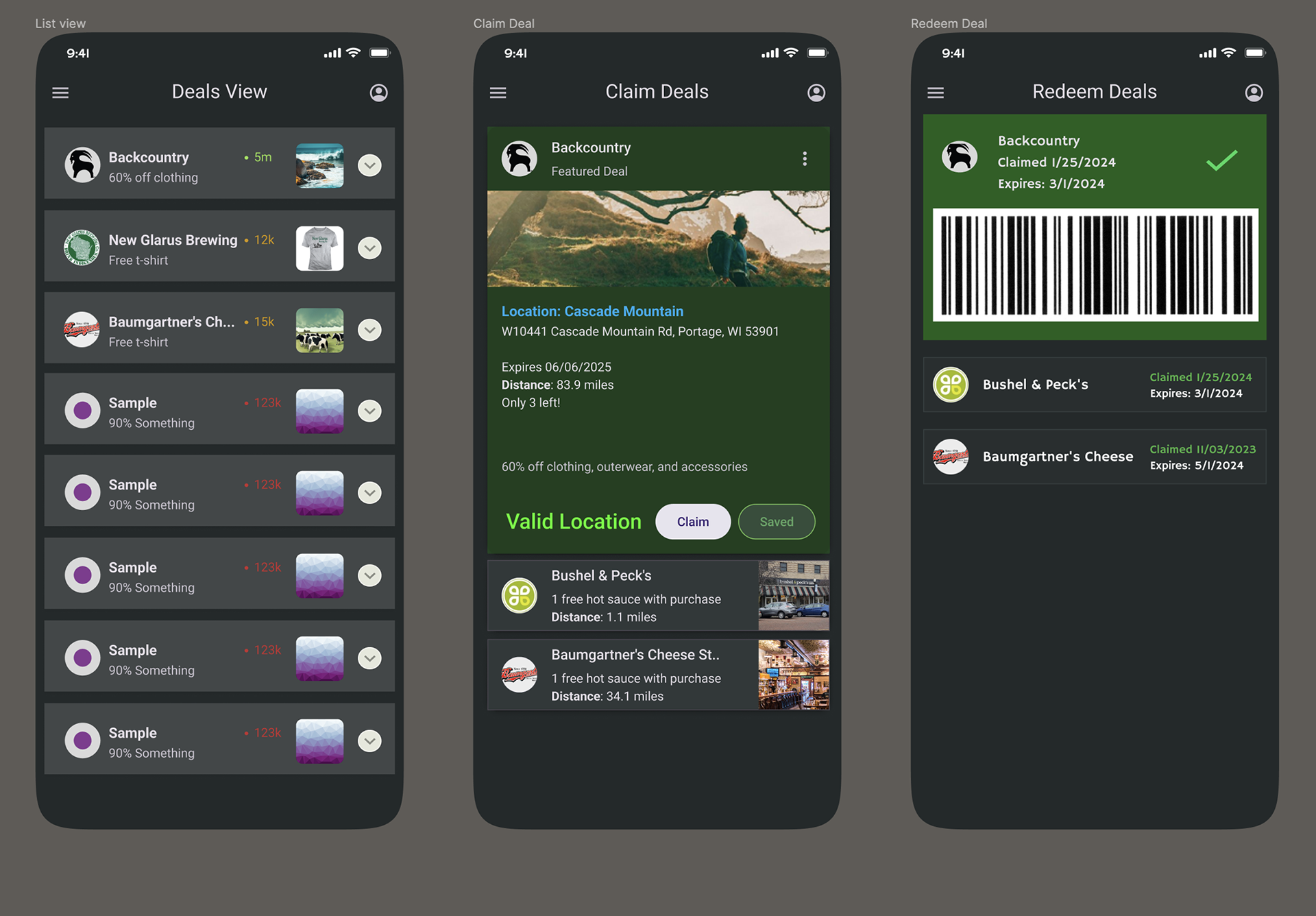KrakenDeals App Concept in Figma:
- The app allows users to claim and redeem deals from local merchants.
- Aims to drive traffic to local businesses through limited-time, geo-located offers.
- Includes standard app utilities: authentication, account management, referral system, and possibly advertisements.
I am still not happy with the ui. The user interaction needs to be more clear .




Executive Summary:
Our app will allow merchants and retailers to offer coupons and discounts to users who visit specific geolocations. The app will help businesses attract new customers by offering unique deals and promotions for those who visit specific areas. Users will be able to collect these coupons and redeem them when making purchases from participating retailers. Our revenue model will be based on a commission-based system, where we will charge a percentage of the revenue generated through the coupons.
Market Analysis:
The market for location-based coupon apps is growing rapidly. There is a high demand for personalized deals and promotions, and our app aims to offer just that. Our target market will be small to medium-sized businesses, such as local merchants and retailers, who want to increase foot traffic to their stores. We will also target tourists and travelers who are looking for deals on products and services while exploring new places.
Product Description:
Our app will have two primary components: a user-facing app and a merchant-facing app. The user-facing app will allow users to browse and collect coupons and discounts from merchants in specific geolocations. The merchant-facing app will allow businesses to create and manage their promotions, view analytics, and track the performance of their campaigns. Users will be able to see nearby promotions on a map and receive push notifications when they are in the vicinity of a participating merchant.
Marketing Strategy:
We will use various marketing channels to promote our app, including social media advertising, influencer marketing, and email campaigns. We will also partner with local tourism boards and travel companies to promote our app to tourists and travelers. Additionally, we will offer incentives to users who refer their friends to the app.
Revenue Model:
Our revenue model will be based on a commission-based system. We will charge a percentage of the revenue generated through the coupons. This will incentivize us to work closely with merchants to create effective promotions that drive sales.
Financial Projections:
Our financial projections are based on the assumption that we will launch in a single market and expand to additional markets over time. We project that we will generate $500,000 in revenue in our first year, with an operating profit of $100,000. Our projected revenue will increase to $5 million by year five, with an operating profit of $1 million.
Conclusion:
Our app is an innovative and effective solution for businesses that want to tap into the growing trend of location-based marketing. By providing an easy-to-use platform for merchants to offer coupons and discounts, and a user-friendly interface for users to collect and redeem them, we believe that our app has the potential to revolutionize the retail industry.
Strengths:
High potential for user engagement: Geolocation deals offer a personalized and timely incentive, encouraging users to explore new locations and avail of exclusive offers.
Increased foot traffic for merchants: Businesses can attract customers to specific locations and drive sales by offering attractive deals.
Variety of use cases: The app can cater to different industries, from supermarkets and restaurants to online retailers and attractions.
Gamification potential: Implementing features like limited-time flash deals or first-come-first-served offers can add excitement and competition.
Potential flaws:
Location spoofing: Users might attempt to bypass location restrictions and obtain deals without visiting the intended location. Will need strong location verification.
Over dependence on location: Could offer other public deals for locations nearby. (Parse deal websites?)
Competition and saturation: The market for location-based is becoming increasingly crowded. Maybe
Data privacy concerns: Collecting and utilizing user location data raises privacy concerns that should be addressed transparently.
Location validation:
Geofencing: Use virtual boundaries to define the area where a deal is valid. Users must be physically present within the geofence to redeem the offer.
IP address verification: Cross-check the user's IP address with their device's GPS location to identify inconsistencies. (VPNs?)
Wi-Fi triangulation: Use signal strength of nearby Wi-Fi networks, the app can estimate the user's location more accurately than GPS alone. Use with GPS.
Device fingerprinting: This technique analyzes unique device characteristics to identify potential spoofing attempts. (Not sure how this would work for this app but wanted to include)
Detect spoofing apps on device (intrusive permissions needed)
Additional considerations:
User privacy: Transparent data collection and usage policies, allowing users to control their location sharing and data preferences.
Merchant partnerships: Growth phase would need to build a strong network of merchants across various industries to offer diverse and appealing deals.
Marketing and user acquisition: Utilize effective marketing strategies to reach your target audience and attract users to your app. Blah blah blah
Continuous improvement: Monitor user behavior and app usage data to continually improve the user experience.
